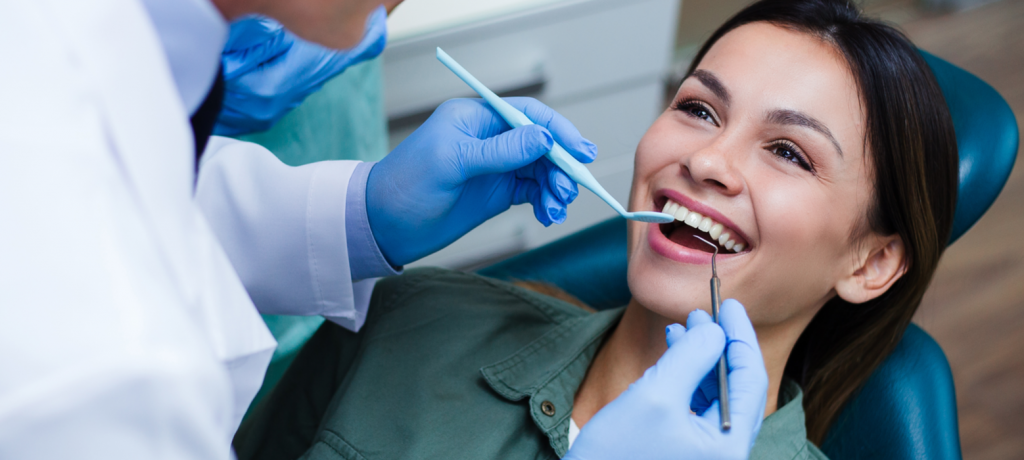Information Library
Start Reading

For many individuals, regular six-month visits to the dentist are an important part of life from early childhood into old age. Routine teeth cleanings reduce your risk for periodontitis, the most advanced form of gum disease. Periodontitis affects half of adults aged 30 or older in the US. Unfortunately, a lack of affordability often prevents people from going to their preventive dental checkups.
At Penn Dental Medicine, we are passionate about providing high-quality dentistry at reduced rates. Regular professional cleanings are essential to prevent periodontitis, which can have long-lasting and painful effects. By investing a little in your oral health care now, you’ll enjoy significant savings down the road when you don’t have to pay for expensive restorative treatments.
 Dental caries and periodontal disease are common dental conditions that are caused by different bacteria. People who suffer from dental caries may not experience gum disease and vice versa. But both are the result of bacteria buildup in the mouth.
Dental caries and periodontal disease are common dental conditions that are caused by different bacteria. People who suffer from dental caries may not experience gum disease and vice versa. But both are the result of bacteria buildup in the mouth.
Periodontal disease occurs due to the accumulation of dental plaque in the mouth. Dental plaque is comprised of millions of harmful bacteria all clumped together in a community. The only way to disrupt these communities is to receive a professional teeth cleaning. People who experience gingivitis (the first stage of gum disease) will need to make more frequent visits to the dentist to prevent dental plaque from advancing further. Once the gingivitis is under control, we recommend making six-month appointments in addition to brushing and flossing daily.
When left untreated, gum disease stimulates a constant state of inflammation. Inflamed gums represent the body’s immune response to the presence of unwelcome bacteria. Eventually, the gum tissue will pull away from the teeth (known as gum recession) to protect itself from dental plaque. Gum recession leads to small gaps, or “pockets,” between the teeth and gums. Dental plaque can then migrate into these small spaces and begin wearing away at the jaw tissue. Infections grow rapidly in these pockets, which can be extremely painful and cause the teeth to fall out.
Promoting oral health is well worth the small investment it takes to visit the dentist. While a dental checkup may be at the bottom of your list of priorities, you should think of it as a life insurance plan for your teeth. After all, gum disease is the most common cause of tooth loss.
Given the prevalence of gum disease in the general population, it is more likely than not that you have some degree of gum disease, if not incipient cavities as well. Because only a professional cleaning can fully disrupt dental plaque, making regular visits to the dentist is the most cost-effective way to address these conditions.
Here are a few other ways you can work to save on your oral health:
Meanwhile, eating fresh vegetables and probiotic-rich foods helps to establish a healthy equilibrium in the mouth by feeding the beneficial bacteria. If you do opt for a sugary treat, we recommend downing a glass of water afterwards to wash out your mouth.
To schedule your appointment for a professional teeth cleaning in Philadelphia, we invite you to call Penn Dental Medicine at 215-898-8965. If it’s your first visit, you can get additional savings on your dental cleaning when you present this $25 off coupon. We look forward to serving you and your family!